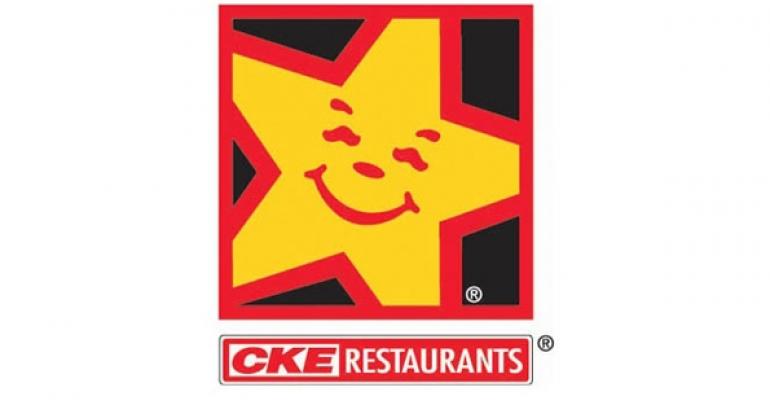CKE Restaurants Holdings Inc., parent to the Carl’s Jr. and Hardee’s quick-service chains, is exploring a possible sale, according to a Reuters news report that ran Thursday.
The affiliate of private-equity firm Apollo Global Management LLC that took CKE private three years ago is working with Goldman Sachs Group Inc. to explore a possible sale, according to the report, which cites three unnamed sources.
The company could be valued at more than $1.7 billion, the report said.
Spokesmen for both Apollo and CKE said they could not comment on the report.
The move comes after CKE registered for an initial public offering last year that aimed to raise as much as $230 million. By August, however, the company put the IPO on hold, citing market conditions.
RELATED
• Carl's Jr., Hardee's pile on the bacon for Superman promotion
• CKE: Health care impact won't be devastating
• More finance news at NRN.com
In April this year, CKE completed a $1 billion refinancing of debt, according to filings with the U.S. Securities and Exchange Commission. Observers said reports of the possible sale indicate the IPO is not going to happen, so the private-equity firm is likely looking to move on.
“They needed an exit,” said Kevin Burke, managing director of Trinity Capital LLC in Los Angeles, whose firm often handles such company sales in the restaurant space.
Burke noted that Apollo will likely benefit from the deal.
Apollo affiliate Columbia Lake Acquisition Holdings Inc. acquired CKE Restaurants in 2010 in a deal valued at about $1 billion. At the time, the offer from Apollo trumped an earlier offer from another private-equity firm, Thomas H. Lee Partners, for about $615 million in cash and the assumption of $309 million in debt.
Little has visibly changed under Apollo’s ownership. CKE continued to be lead by chief executive Andrew Puzder, and the brands continued their focus on “young, hungry men” with ads featuring decadent burgers and models or actresses. CKE has long eschewed the discounting and dollar-menu tactics used by competitors.
In recent years, however, CKE has stepped up international growth. The company has 500 units in 28 foreign countries, and the company has pledged to double that number within the next five years.
Over the past two years, the company has seen 148 international locations open in 10 new countries, a rate that outpaced domestic growth. Pending deals include plans to bring 100 units to Brazil, expand the existing presence in Russia and first-time moves into Denmark, Guatemala and Puerto Rico.
At the end of the last fiscal year ended Jan. 28, the company operated and franchised 3,318 restaurants, including 1,369 Carl’s Jr. and 1,944 Hardee’s units in 42 states and around the world.
For the January-ended year, CKE reported revenues of $1.3 billion, an increase of $46 million, or 3.6 percent, compared to the prior year, according to SEC filings. Adjusted earnings before interest, taxes, depreciation and amortization for the year were expected to be between $195 million and $197 million.
Consolidated same-store sales rose 3 percent for the year at company locations, with Carl’s Jr.’s comparable sales rising 3.6 percent and Hardee’s’ increasing 2.3 percent.
John Gordon, principal with Pacific Management Consulting Group in San Diego, said it’s unusual for private-equity firms to sell after less than three years of ownership. “What has the company gotten out of it?” he posed. “What has Apollo gotten out of it, other than debt-driven dividends?”
The answer will largely depend on what sort of price CKE could get if it does find a buyer. The environment for quick-service remains challenged, which could scare potential investors away from the space, Gordon said.
Competitors McDonald’s Corp. and Wendy’s Co. reported lackluster same-store sales increases for the second quarter, indicating continuing macroeconomic headwinds for quick-service chains.
On the other hand, Gordon said CKE’s growing international profile could make an investment more attractive.
“What sells in these big levered transactions is the potential for growth,” said Gordon. “My opinion is they have to find a private-equity firm not interested in a quick flip.”
Contact Lisa Jennings at [email protected].
Follow her on Twitter: @livetodineout




